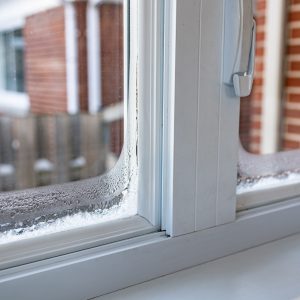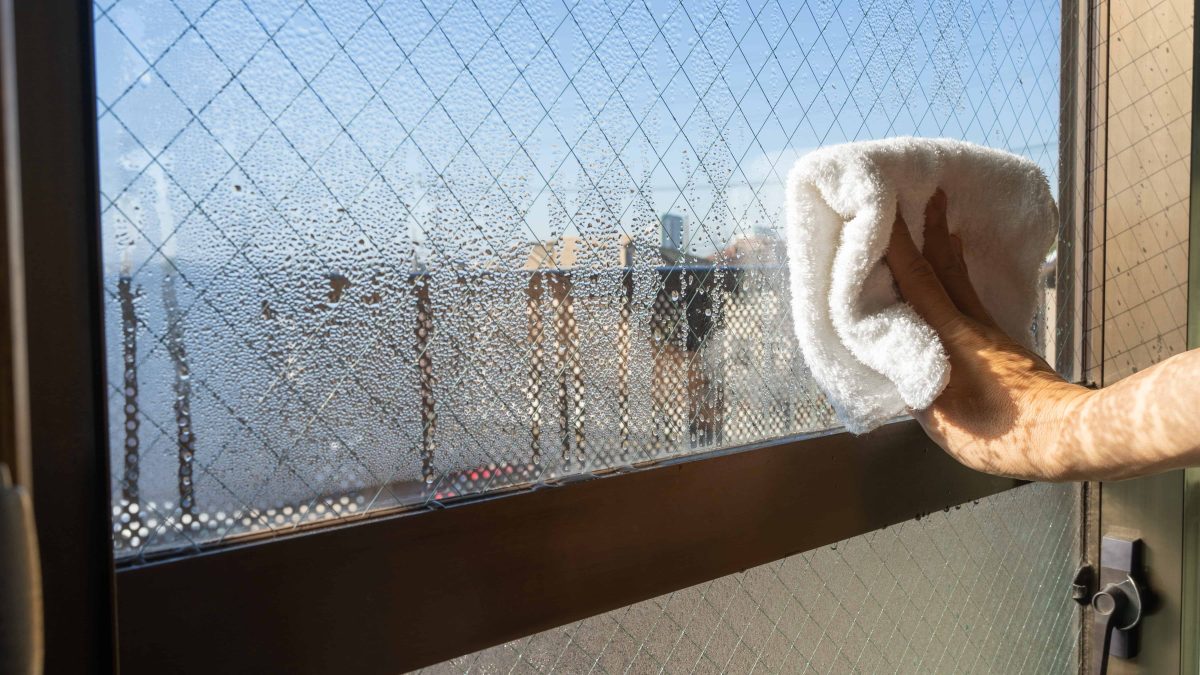Does Double Glazing Reduce Condensation?

Condensation is a pain isn’t it? It’s one of those irritating little problems that you can never quite get rid of and no matter where you live, we’ve all experienced it. Sometimes it might not seem like a big deal, but if condensation isn’t dealt with, it can have serious repercussions. But even if we can’t get rid of it entirely, is there a way to reduce it?
Here at Ecostar, we get frequent questions about whether double glazed windows can eliminate it. It’s true that they’re superior to single glazing, but how effective are they? Let’s take a close look and see if we can help.

What Causes Condensation?
To understand how to prevent condensation, it’s worth knowing what causes it in the first place. It’s all down to two things; moisture in the air and temperature differences. When water in the household atmosphere comes into contact with a colder surface, it forms droplets. If you have an icy drink in the summer, you’ll notice condensation forming on the glass and it’s the same with windows. That’s why you’ll normally see it first thing in the morning; the cool night air has chilled the windows and they’ve misted up.
In isolation, it’s more annoying than problematic, but over time it can have serious consequences. Prolonged exposure to water can lead to rot and damp, especially with wooden framed windows. This isn’t just bad for the furnishing; mould can have a negative impact on your health too and if you already suffer from respiratory issues, it’ll be even worse. Yes, you can quickly wipe the water off the double glazed windows with a towel, but if it forms every night, it’ll need a more permanent solution.
Double Glazing Vs Condensation
That’s where double glazed windows come in. It isn’t a foolproof answer but it will significantly reduce the amount of condensation and easily outperforms traditional single glazed windows. As the name suggests, double glazing consists of two panes of glass in one frame, and the gap between them does wonders.
It acts as a thermal barrier, so there is less heat transfer between the house and the world outside. In layman’s terms, this means the temperature differences have to be greater for the inside of the window to be cold enough for moisture to form. The condensation-proof window hasn’t been invented yet, and whoever patents it first will be a millionaire, but for now, double glazing is a very good option.

That aside, there are a couple of other things you can do to reduce the chances of condensation and the damage it causes. Wiping the water off is a straightforward, short-term answer and leaving the window open a crack will help it disperse as well. We would also recommend replacing wooden windows with UPVC ones, as it’s harder for the water to seep into them and cause damage.
In other words, yes, double glazing does reduce condensation. It doesn’t solve it outright, but it is a big contributing factor in limiting the problem. If you still have single glazed wooden windows, we would recommend upgrading them as soon as possible.
If you’d like to get started on a replacement window project, you’ve come to the right place. Ecostar are southern Australia’s double glazing experts and we can help. Get started by requesting a quote or contact us if you have any questions. We can’t wait to hear from you.

